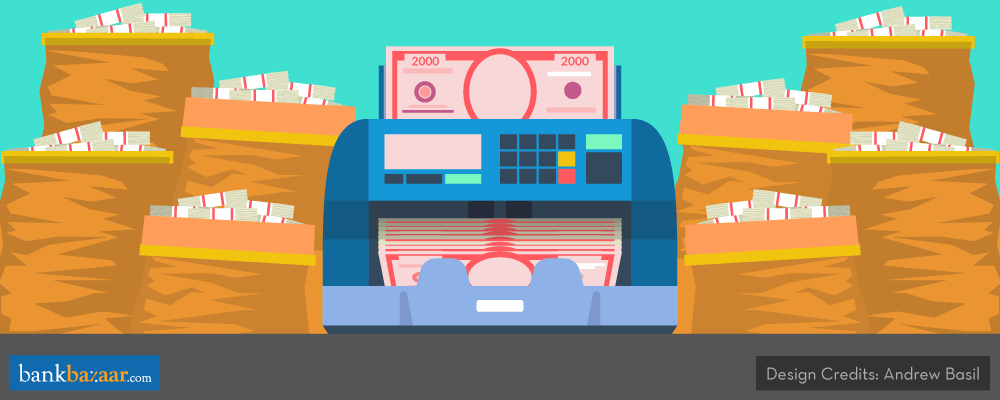The government’s demonetisation move that banned the use of Rs. 500 and Rs. 1,000 notes last year affected not only the economy but also impacted important money moves like Investments, loans etc. Read on to know what it did to your money.
The demonetisation drive introduced by the central government last year created ripples across the country, posing varied kinds of challenges to people. The move made tendering of Rs. 500 and Rs. 1,000 notes illegal, causing financial disruptions for many. Personal finance for common people – be it daily cash needs, or long-term ones like repaying loans or buying investments also witnessed important changes in past one year.
Let us take a look at how your money and personal finance was affected in the past one year after demonetisation.
Transformation From Cash To Digital Transaction
Post demonetisation, the government announced several incentives for the use of digital platforms for making transactions smoother and attractive. Retailers introduced several offers and discounts on digital transactions to make digital transaction popular. Several digital payment applications and platforms were rolled out by banks and companies. Charges on online banking payment transfer were initially reduced by the banks and imposed again. However, the charges are still lower than pre-demonetisation level.
Now, states, municipal boards, power departments, and a large number of public utilities have started accepting the payment through the digital mode.
Digital transactions helped people track their expenses and improve their money management.
Realty Prices Stabilised
The realty market was in deep trouble before the demonetisation as property prices were unrealistically high due to the involvement of black money whereas buyer demand was stagnating. After demonetisation, the black money involvement in realty market came down significantly, resulting in price normalisation and demand returning to the market. We’ve also seen the government enforce RERA and Benaami Transaction Act, which further boosted buyers’ trust in the market.
It is a good time to buy your dream home now as the interest rate is low and there are better rules like RERA Act to govern the sector.
Interest On Loans Fall
The demonetisation flushed the banks with cash, which resulted in fall in the Loan interest rates. Interest rate across various categories of loan product came down in the last one year, resulting in easy loan accessibility for many.
If you are an existing loan borrower, you can now repay your loan quicker and close it early or you can reduce the EMI burden by keeping the tenure same.
Fixed Deposit Interest Rate
Before demonetisation, the interest rate on Fixed Deposit was close to 8% p.a. level, but now it has fallen to 6% to 6.5% mark which could be a setback for the risk-averse investors. The fall in FD interest rate has made it unattractive against schemes such as Public Provident Fund, Mutual Fund debt scheme etc.
It would thus make sense to remain invested in your old FD. However, if you are looking for a safe option to invest money, then you can explore options in the Mutual Fund debt scheme and Post Office Fixed Deposit Schemes.
Increased Investment In The Mutual Fund
A large number of people started filing income tax after demonetisation, and to save tax under Sec 80 (C) they opted for Mutual Fund ELSS schemes. They looked for attractive investment options that can give better returns. Also, demonetisation not only resulted in lower FD rates but also made gold investment less attractive. So, a large number of investors moved towards Mutual Fund and equity-related investments to park their money.
The demonetisation process is followed by GST and other key reforms and the process is directed towards transforming the economy to ‘less-cash’ economy. The impact of demonetisation on the economy is not absolute and the real picture would emerge as time passes.
BankBazaar.com is a leading online marketplace in India that helps consumers compare and apply for Credit Card, Personal Loan, Home Loan, Car Loan, and insurance